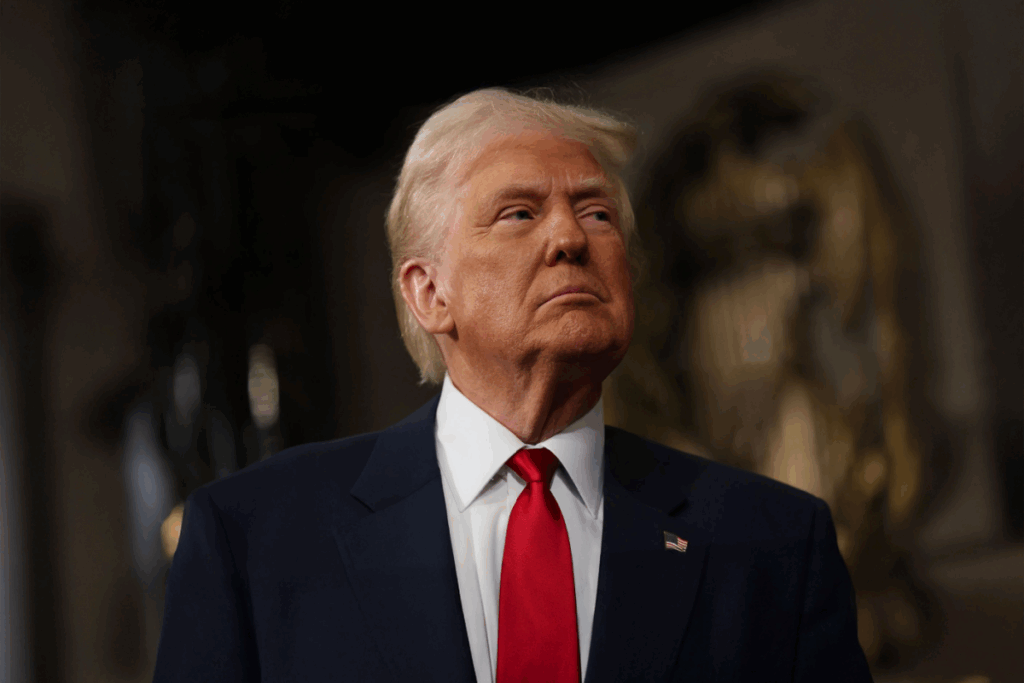President Calls for “Nuclear Option” Amid Shutdown Deadlock
President Donald Trump has reignited a long-simmering debate in Washington by urging Senate Republicans to eliminate the 60-vote filibuster rule — a procedural hurdle that requires bipartisan support for most legislation — as the government shutdown drags into its third week.
“It is now time for the Republicans to play their ‘TRUMP CARD,’ and go for what is called the Nuclear Option,” Trump wrote Thursday night on social media. “Get rid of the Filibuster, and get rid of it, NOW!” He argued that ending the rule would allow Republicans to reopen the government without needing Democratic votes.
But Trump’s call was met with swift and broad resistance from within his own party. Senate Majority Leader John Thune (R-S.D.) and his leadership team reaffirmed their commitment to preserving the filibuster, describing it as a key safeguard of minority rights in the chamber.
“Leader Thune’s position on the importance of the legislative filibuster is unchanged,” said Thune spokesman Ryan Wrasse. Other Republican leaders, including Senate Whip John Barrasso (R-Wyo.), echoed that stance.
GOP Lawmakers Push Back
Several senators issued public statements rejecting Trump’s demand. “The filibuster forces us to find common ground,” said Sen. John Curtis (R-Utah). “Power changes hands, but principles shouldn’t. I’m a firm no on eliminating it.”
The debate intensified earlier this week after Sen. Bernie Moreno (R-Ohio) appeared on Fox News suggesting Republicans should abolish the rule to push through funding and end the shutdown. His proposal was immediately dismissed by fellow Republicans, including Ohio’s other senator, Jon Husted. “That’s not a step I think we should take,” Husted said.
Sen. Thom Tillis (R-N.C.) reiterated his opposition, recalling that Trump made similar calls during his first term. “We stood firm then,” Tillis said. “I can’t imagine anybody changing now.” Other lawmakers, including Sens. Roger Marshall (R-Kan.) and Markwayne Mullin (R-Okla.), said scrapping the filibuster would backfire if Democrats regain control of the Senate.
“The Senate goes back and forth,” Mullin said. “It’s in our favor when we have the minority.”
Historical Context and Political Implications
The 60-vote threshold, formally established in 1975, is required to invoke “cloture” — the process that limits debate and allows most bills to advance to a final vote. While exceptions exist, such as the budget reconciliation process, both parties have historically resisted eliminating the legislative filibuster altogether.
The Senate has previously removed the rule for judicial and executive branch confirmations, but lawmakers have been reluctant to extend that change to legislation. Republicans warn that doing so would give Democrats unchecked power to enact sweeping policies on abortion, voting rights, and court expansion if they regain control.
“The 60-vote threshold has protected this country,” Thune said earlier this month. “It’s been a bulwark against a lot of really bad things happening.”
Democrats and the Standoff
Democrats have dared Republicans to follow through on Trump’s threat, arguing that the GOP must either eliminate the filibuster or work across the aisle to pass a funding bill. “Republicans should have done it if they didn’t want to deal with us,” said Rep. Chris DeLuzio (D-Pa.) on NBC’s Meet the Press NOW.
Some Democrats who once campaigned to end the filibuster now see value in keeping it during the current stalemate. “We ran on killing the filibuster, and now we love it,” said Sen. John Fetterman (D-Pa.). “It makes it more difficult to shut the government down in the future.”
House Speaker Mike Johnson (R-La.) also distanced himself from Trump’s proposal, calling the filibuster “a very important safeguard.”
Trump, meanwhile, has warned Republicans that Democrats would not hesitate to eliminate the rule if they regain control. “If the Democrats ever came back into power … it will be done on the first day they take office,” he wrote.
So far, few Senate Republicans appear persuaded. Asked whether his campaign to convince colleagues was gaining traction, Sen. Moreno conceded, “Not yet.”


